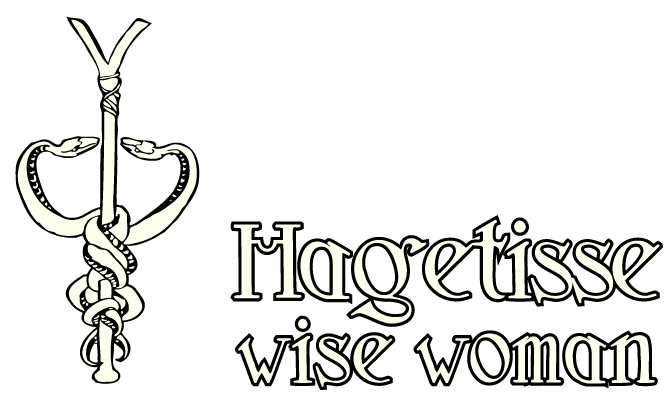About toxic positivity: accepting negative emotions

In an earlier blog on wyrd I already mentioned the term toxic positivity. Today I want to elaborate on that a bit more. I’m a pretty positive person. Without a positive and optimistic outlook on life I would never have dived into all those adventures which I’ve had in my life. I know from experience that everything passes and that most challenges, in retrospect, turned out to be blessings in disguise. They always bring me a little further along the path that I’m supposed to walk. I trust that. That doesn’t mean that life can’t be just downright sucky every now and then. That sometimes you can’t yet see the silver lining when you’re in the midst of shit going down. And that it can help to talk about your negative emotions when that happens. Negative emotions can be useful too.
Sometimes you need to express yourself
However, it isn’t always that easy. Many people have difficulty coping with someone showing their negative emotions. Often with the best of intentions, they immediately start proposing solutions, usually along the lines of “change your way of thinking”, “focus on the things that are going well.”
What they seem to forget is that most people already know and apply these techniques, but that sometimes they’re simply not enough, not all the time. In addition, they forget that most people tend to not show their negative emotions and that the person across from them probably really needs to express themselves.
Makeable success makes for makeable happiness
As I discussed earlier, in our society the idea rules that life is makeable. That malleability applies to everything, including our happiness. Of course, that idea is incorrect, but unfortunately that doesn’t change the effect it has on our lives. We are pushed on all sides to show how successful and happy we are. As a result isn’t always an option to give an honest answer to the question how you are doing.
Because the social pressure to be successful and happy is high, many people find it difficult to talk about negative feelings. I’m not talking about complaining about the weather here, but about matters having an effect on someone’s mental well-being. I myself, therefore, assume that if people express negative experiences, thoughts or emotions to me, that they are in dire straits. At that moment, they aren’t helped by putting things into perspective, gratitude mantras or tips on how to give a positive twist to troubles.
Drown everything in positivity sauce
In fact, when you react like that, you are actually telling them that negativity is not allowed. There is a real danger that they will no longer permit themselves these emotions and drown everything in positivity sauce from that point on. There is a term for this phenomenon: toxic positivity. And toxic positivity can make you sick.
Meanwhile, because of our cultural indoctrination, the tendency to want to propose solutions has become so ingrained into us that people often don’t know how to respond to someone who shares negative feelings with them. What is a good way to react when someone is clearly wrestling negative emotions?
Take your conversation partner seriously
The first step would be showing your conversation partner that you take him or her seriously. Talking about negative emotions often doesn’t come easy. So, someone confiding in you is actually a great compliment. If you go into solve mode at that point, you betray that trust. You can bet that, next time, your conversation partner will only show you a happy face.
It’s also important that you position yourself next and not above someone. What I mean by this is that you show that you are listening to your conversation partner without judging. It may help to remind yourself that your world may look very different from your friend’s world. We all face different challenges, as well as have other desires and values.
The difference between empathy and sympathy
Show empathy instead of sympathy. Instead of putting someone’s feelings into perspective – and thereby trivialising them – or giving unsolicited advice, try to put yourself in the someone else’s shoes. You don’t have to have been through the same thing, just imagine how something might feel. Often, it’s enough to say: “I am here for you”. Or even to say nothing at all and just be there. If you are not sure what the difference is between empathy and sympathy, check out this video.
Tell your story at a more appropriate time
Do not immediately share your own experience in the matter, even if you have had relevant experiences. This is something I probably don’t need to tell you, because we’ve all been there plenty of times. You tell someone about this thing that’s happened to you. Almost before you’ve finished your story, the person interrupts you with his or her account of a similar experience. While all you wanted was to just get something of your chest. Exchanging experiences can be very valuable, but it isn’t always appropriate. In this case, it’s better to listen actively and let your conversation partner unburden him or herself.
You could ask if you can do anything to help. You can put this as simple as that: “Is there anything I can do for you?” Often your listening ear is enough and all your friend needs. Sometimes there’s something concrete you can help with. Please note: only ask this question if you feel you’re in a position to help. Maybe you already have a lot on plate.
Tools to hone a listening ear
I don’t know how you feel about this, but I really enjoy being able get stuff out in the open every now and then. Especially when I feel bad, it helps a lot to be able to just talk about it, no questions asked or solutions offered. And I really like it when I, in turn, can offer a listening ear connected to an open mind to those who need it.
I hope this blog has provided tools for the next time someone comes to you for a bit of compassion. They may seem to be open doors, but unfortunately they aren’t usually put into action. And they are needed. By applying them, we can be there for each other and contribute to each other’s mental well-being. And that is essential for a healthy life.




